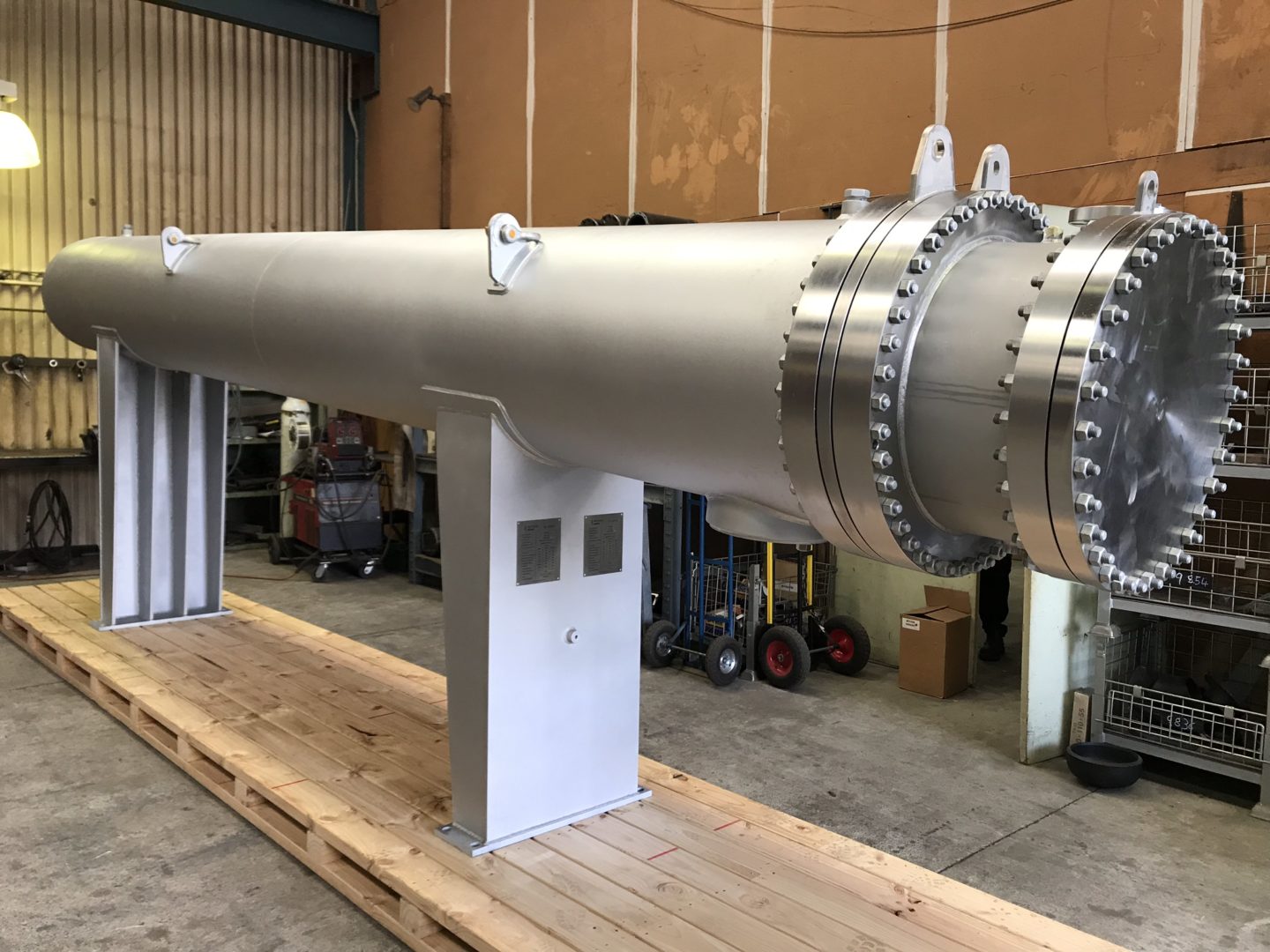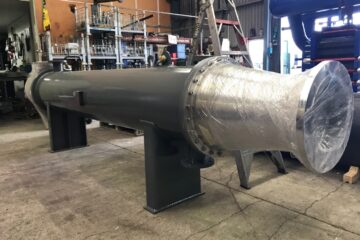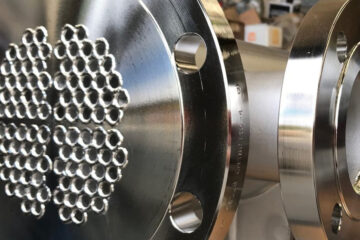H2S Cooler for Madagascar
Pressure Worx is pleased to report that they have completed design, manufacture and testing of a large stainless steel H2S Cooler for one of the world’s largest Nickel refineries in Madagascar.
Hydrogen Sulphide (H2S), more commonly known as ‘rotten egg gas’ is an essential gas used in the production of Nickel. The gas is produced by reacting molten liquid sulphur with hydrogen in a reactor. The refinery produces 225 tonnes per day of H2S for its Nickel production.
“Pressure Worx won a contract to design and supply the H2S Cooler in Madagascar, having considerable experience and reputation in the design and supply of similar heat exchangers for Nickel plants around the world”, said Steve Rowntree, director at Pressure Worx.
The H2S cooler, cools the gas down in the shell of the unit. Residual sulphur within the gas solidifies on the outside of the water cooled U-tubes during the cooling process. Over time this results in a restriction of the gas flow and a reduction in cooling performance. “The Pressure Worx design incorporates a special shell jacket, that periodically allows the operators to inject low pressure steam around the outside of the shell, melting the sulphur build up which then drains to a separate blow down vessel, allowing the performance of the cooler to return to new” reported Rowntree.
The H2S cooler was designed by Pressure Worx in Auckland. High temperature stainless steel grade SS310s was used for the tube bundle design, providing excellent resistance to corrosion and oxidation at elevated temperatures. Non-destructive testing (NDT) including both X-rays and dye pen testing was carried out on all welds in direct contact with the H2S gas due to ensure their integrity with the highly toxic gas. Fabrication, testing and certification of the unit was carried out in Auckland.
“It’s great to see that NZ companies can still compete globally on the world stage with clever design, IP and competitive specialist fabrication” said Rowntree. “We are currently developing other specialised heat exchange equipment designs as well as a range of biogas and landfill gas conditioning systems to improve the efficiency and reliability of renewable gas power gensets around the world.”






